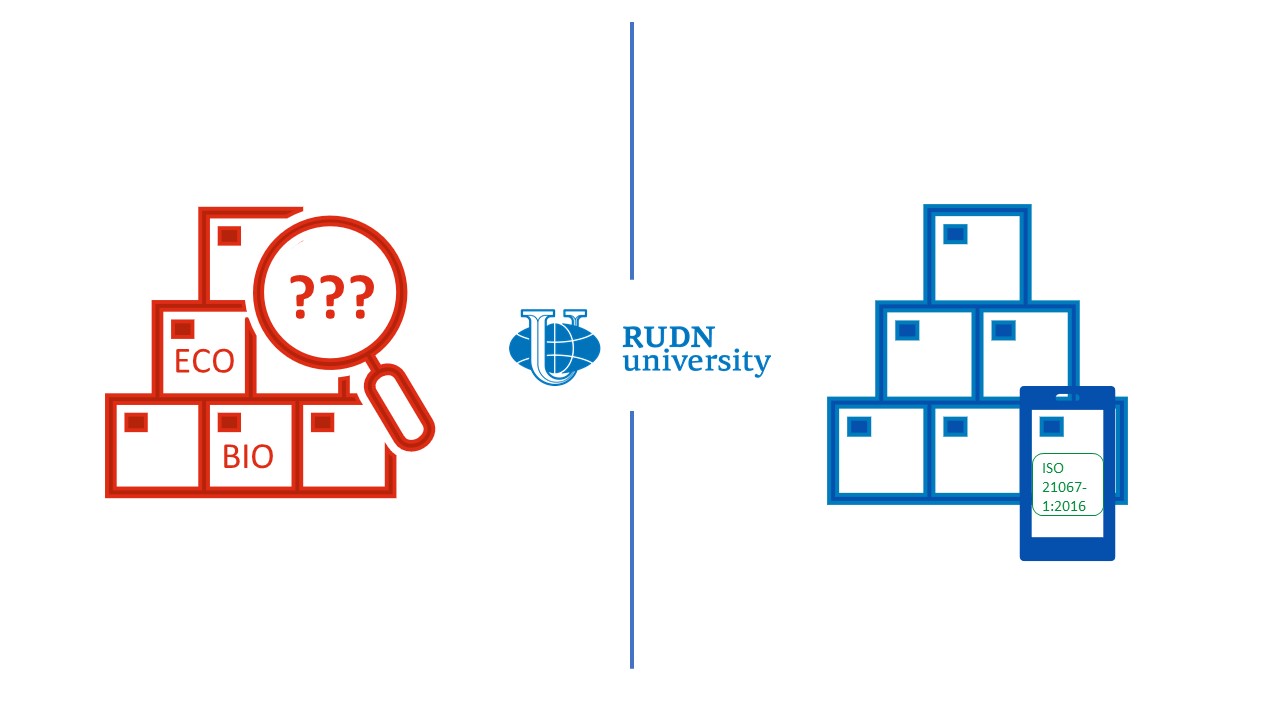RUDN economists found out why eco-labels do not work in Russia, and suggested how to fix it
An important step to reduce waste and pollution is conscious consumption. The consumer must understand what he acquires and what consequences it will have for the environment. To do this, eco-labeling has been introduced all over the world — a special mark on the product that ensures that all stages of its production and use are safe from the point of view of ecology. It is assumed that eco-labeling helps to achieve sustainable economic development along with taxes and other tools. Ecomarks are in almost all countries, but often they are not supported by law, are not reliable, and sometimes even deceive the consumer. For example, in Russia, eco-labeling is fixed only in a few GOSTs. In addition, consumers mostly do not understand labeling, do not pay attention to it or do not know how to use. At the same time, almost no attention is paid to this problem.
“Consciousconsumer behaviour is important for preventing and reducing waste and environmental stress. The daily choice of goods and services by millions of buyers can stimulateor hinder the sustainable development of the world economy. Eco-labelling raises consumer awareness and leads to the emergence of new environmentally friendly goods, technologies and production systems. However,in practice, the abundance of labels and environmental declarations can reduce the understanding of the differences between products and create barriers to trust in information. In Russia, the problem of unreliable informationand about the environmental properties of goods and services is still not recognized. As far as we know, there have been no empirical studies of environmental protection in Russia. labelingand asa tool for sustainable development policy,” — Candidate of Economic Sciences Konstantin Gomonov, Associate Professor of the Department of Economic and Mathematical Modeling of RUDN University.
RUDN economists found out how consumers feel about eco-labeling in Russia, what they know about it and how they use it. To do this, the researchers interviewed 250 people. Then economists studiedhow the manufacturers themselves label their goods by studying products in several popular chain supermarkets.
Among the surveyed consumers, 42% were familiar with the eco-labeling system (in Europe, this value reaches
“Consumers need to be more understanding of eco-labelling. However, instead of offering the distribution of educational materials, we advise developing smartphone apps that will allow buyers to check the compliance of eco-labels on the product with ISO standards directly during the shopping process. We believethat this isa cost-effective and simple way to simultaneously increase consumer awareness of eco-labeling and reduce the likelihood of greenwashing,” — Ph.D. in economics Svetlana Revinova, Associate Professor of the Department of Economic and Mathematical Modeling, RUDN University.
The results are published in the journal Sustainability.
The RUDN Prize for Scientific Achievements in Chemistry for 2025, with a monetary award of 2 million rubles, was awarded to Alexander Davidovich Dilman, Deputy Director of the N.D. Zelinsky Institute of Organic Chemistry of the Russian Academy of Sciences. The researcher received the award during the celebration marking RUDN’s 66th anniversary.
Sergey Ivanov, a scholar from St. Petersburg, has been named the first winner of RUDN University’s International Prize for Scientific Achievements in Mathematics, worth 5 million rubles.
Products derived from microalgae represent a cutting-edge development in the field of bioeconomy. The potential of this biological resource was discussed at the international research seminar “Foundations for a Green Sustainable Energy”, part of the BRICS Network University’s thematic group on “Energy”. The event was organized by the Institute of Ecology at RUDN University.
